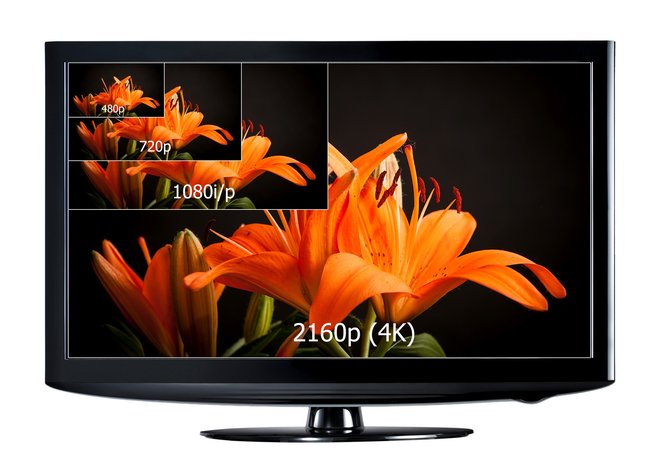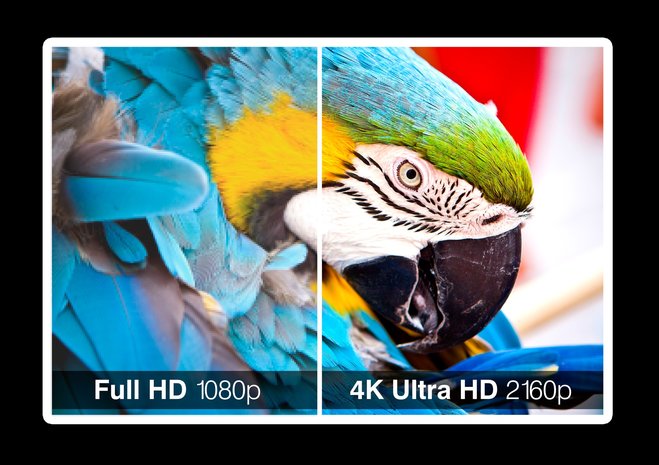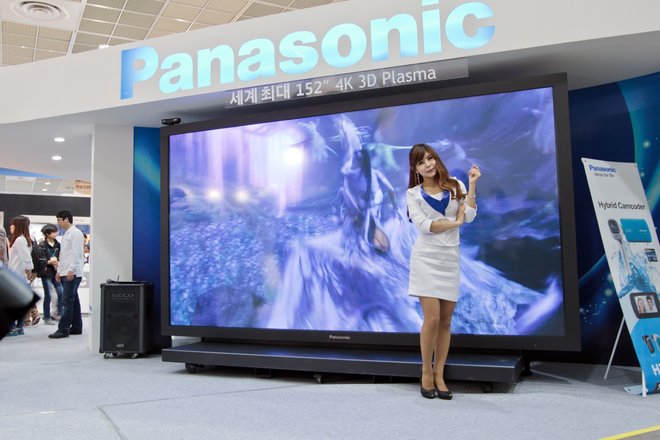2 minute tech: What's 4K / Ultra-HD?
Tech zealots have been trembling in awe for a while when uttering these to words: 4K and Ultra-HD. You may have heard that this is a new standard for TVs and computer displays. Read on to learn what the fuss is all about and whether you should jump on the 4K bandwagon now!

What it is:
Many of you are probably enjoying TVs and displays that have a Full HD resolution. This means they can display 1920 pixels in width and 1080 pixels in height. 4K/UHD displays take things one step further with 4096 x 2160 pixel on 4K and 3840 x 2160 pixels on UHD displays - 4x as many pixels as Full HD.
What devices do I need?
You will most likely have to replace (nearly) everything. That's the bitter truth. Full HD displays, as the name implies, can't cope with these resolutions neither can ordinary Blu-ray players that are stuck at Full HD. Devices that boast 4K upscaling features are eyewash, they can't play the new discs but simply try to blow up Full HD to 4K resolutions. TV receivers, unless bought very recently at premium prices, also do not support this latest standard. Only a few highly powerful and expensive graphics cards can cope with this phenomenal resolution, resource intensive games require the best of the best. As always, TVs with the latest technology are fairly pricey and it doesn't stop there. Make sure to look at the big picture before you buy a 4K/UHD device.

What do you get?
A truly breathtaking resolution, admittedly. When we got, unboxed and switched on our first 4K TV, everyone fell silent. If you know our testers you also know that they are seldom speechless. Never before had we seen images this crisp, outdoor scenes appeared stunningly realistic and you could see every detail in human faces. If you always wanted to know whether actors and TV hosts really have immaculate skin, here's your chance!
As computer displays, 4K/UHD monitors are a blessing, if you enlarge fonts and icons by 175%. Windows 10 detects such displays automatically and makes sure you don't have to use a magnifying glass. Everything is incredibly sharp you won't want to go back to your "normal" display. Despite the euphoria about the technical details I must mention one thing: The transition from standard Full HD to 4K/UHD is not that big of a step. 4x as many pixels may flatter your eyes but Full HD is still good enough.
What content is available?
Although understandably, the entertainment industry has a strong interest in establishing new standards to make money, the available content is still very limited. As far as Free TV goes, there are only a few test channels available via satellite and only a few blockbuster movies are available on high-resolution Blu-ray disc. Usually, this is where streaming services come in to play the flexibility card but that's not the case with 4K. A few series such as House of Cards (Netflix) or Mozart in the Jungle (Amazon Prime) are available but don't expect a large movie selection any time soon. Besides, you'll need the latest Fire TV / Fire Stick to view them.
What else do you need? A high speed Internet connection! You won't have fun with anything below 25 Mbit/s and I'm talking 25 Mbit/s around the clock not at 3 A.M. in the morning when you're the only person online. Better make that 50 Mbit/s to be on the safe side.
 My next TV, if I can get that giant raise approved
My next TV, if I can get that giant raise approved
Conclusion:
There's nothing wrong with the technology, it works surprisingly well (for first generation devices). But until content providers have caught up with technology and hardware prices went down, this is a fine example of nice to have but not must have. Another benefit: If you own a modern camera / cellphone you can view your photos and movies in their full resolution, 4K is slowly making its way onto affordable cameras and cellphones. Youtube has also begun supporting 4K videos, Full HD also looks nice and capable TVs / computer displays are not that expensive compared to their Full HD equivalents. But if you intend to max out your TV, you will have to wait and you'd better start saving up for all the equipment upgrades you'll need.
<strong>Author's note:</strong>
When this article is published, most members of our editorial staff well be on Easter vacation and it may take a little longer to approve your comments and answer your questions so please be patient. Happy Easter holidays to all of you!




